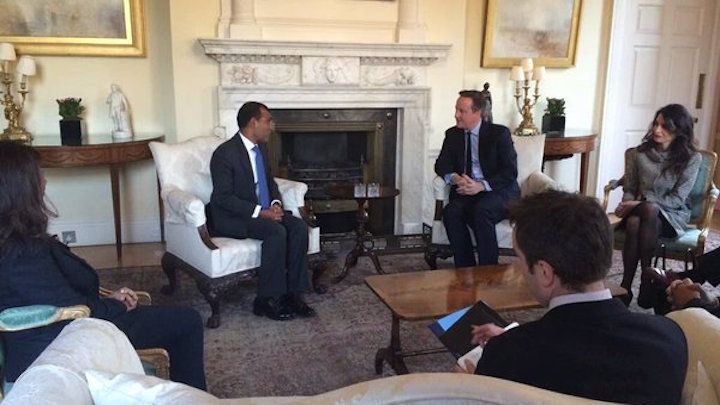UK will consider Maldives sanctions, says Cameron
“We want to see a change in behaviour from the Maldivian government to make sure that political prisoners are set free and yes we are prepared to consider targeted action against individuals if further progress isn’t made,” Cameron told the British parliament yesterday.

28 Jan 2016, 09:00
The United Kingdom is prepared to impose targeted sanctions on top Maldivian officials if former President Mohamed Nasheed and other jailed politicians are not released, Prime Minister David Cameron has said.
“We want to see a change in behaviour from the Maldivian government to make sure that political prisoners are set free and yes we are prepared to consider targeted action against individuals if further progress isn’t made,” Cameron said at the British parliament yesterday.
“Let us hope that diplomatic efforts, including by the Commonwealth Ministerial Action Group, will lead to the changes we want to see. But Britain and our allies, including India and Sri Lanka, are watching the situation very closely.”
The prime minister’s statement marks the first time a head of government has threatened to impose sanctions on regime officials since the imprisonment of opposition leaders in early 2015 triggered a prolonged political crisis and drew international condemnation.
Become a member
Get full access to our archive and personalise your experience.
Already a member?
Discussion
No comments yet. Be the first to share your thoughts!
No comments yet. Be the first to join the conversation!
Join the Conversation
Sign in to share your thoughts under an alias and take part in the discussion. Independent journalism thrives on open, respectful debate — your voice matters.




